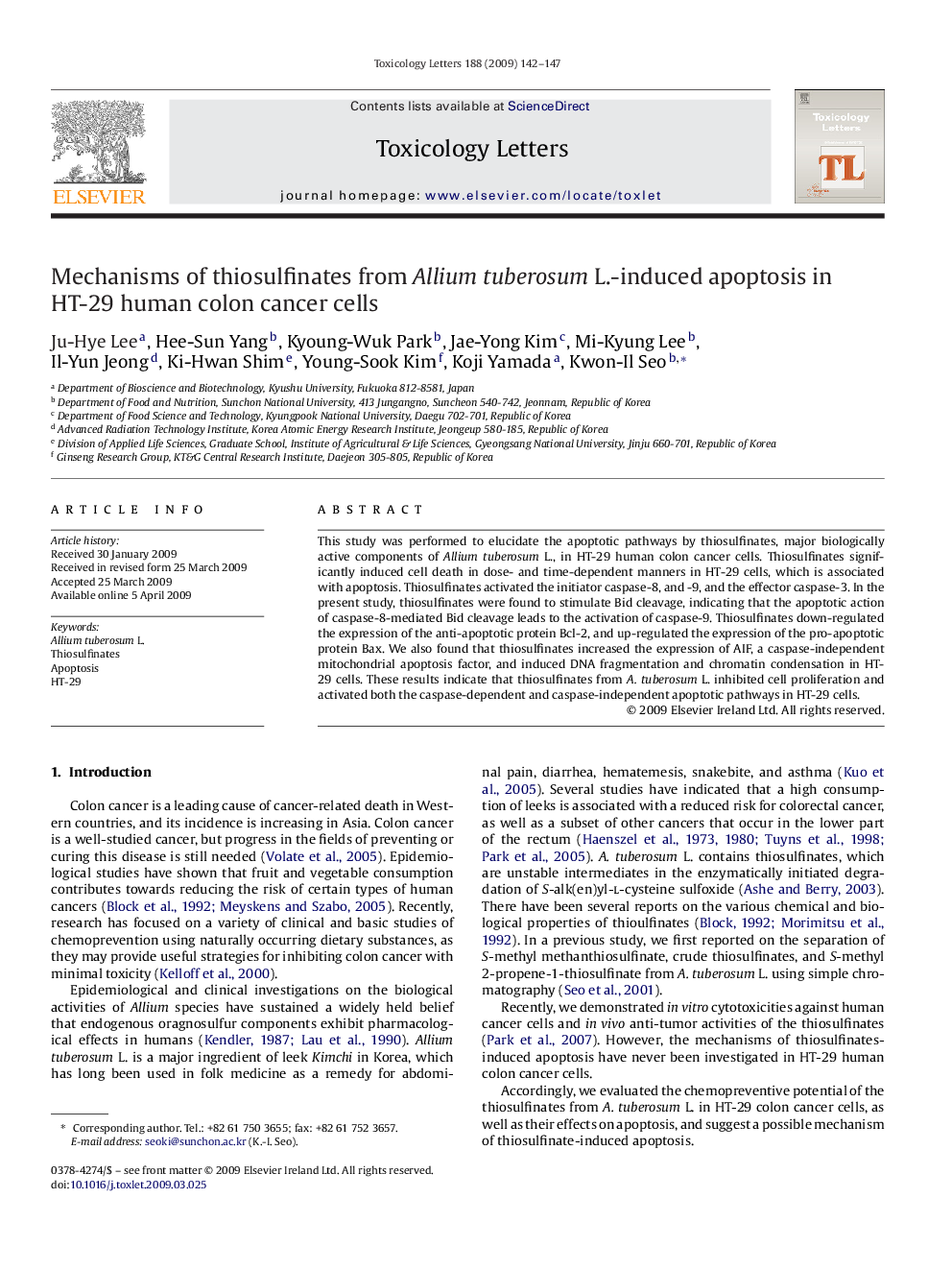| Article ID | Journal | Published Year | Pages | File Type |
|---|---|---|---|---|
| 2600998 | Toxicology Letters | 2009 | 6 Pages |
This study was performed to elucidate the apoptotic pathways by thiosulfinates, major biologically active components of Allium tuberosum L., in HT-29 human colon cancer cells. Thiosulfinates significantly induced cell death in dose- and time-dependent manners in HT-29 cells, which is associated with apoptosis. Thiosulfinates activated the initiator caspase-8, and -9, and the effector caspase-3. In the present study, thiosulfinates were found to stimulate Bid cleavage, indicating that the apoptotic action of caspase-8-mediated Bid cleavage leads to the activation of caspase-9. Thiosulfinates down-regulated the expression of the anti-apoptotic protein Bcl-2, and up-regulated the expression of the pro-apoptotic protein Bax. We also found that thiosulfinates increased the expression of AIF, a caspase-independent mitochondrial apoptosis factor, and induced DNA fragmentation and chromatin condensation in HT-29 cells. These results indicate that thiosulfinates from A. tuberosum L. inhibited cell proliferation and activated both the caspase-dependent and caspase-independent apoptotic pathways in HT-29 cells.
